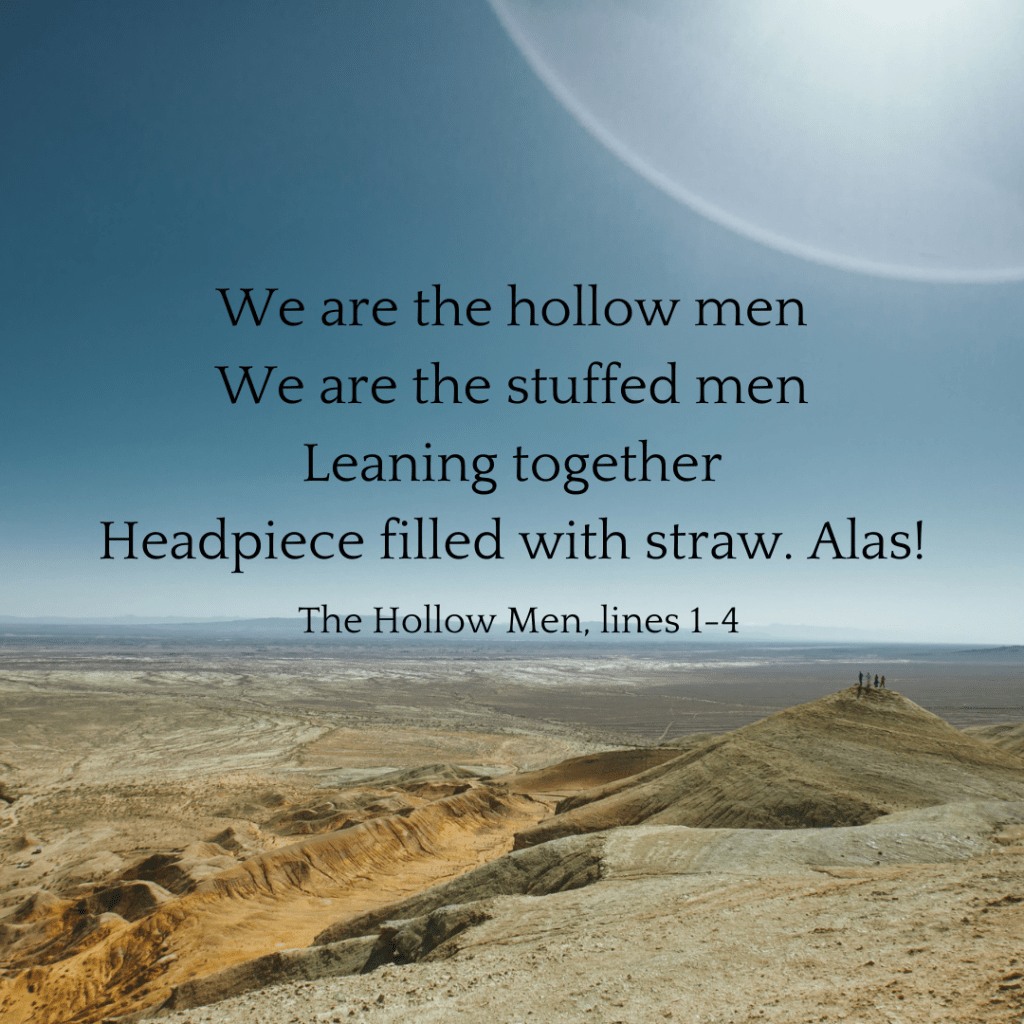
1. Listen to T.S. Eliot read his own poetry!
There’s another video on You Tube that has the great Sir Alec Guinness (the original Obi Wan Kenobi) reading The Waste Land too!
2. Read Source Material
Sources for The Waste Land
Not only the title, but the plan and a good deal off the incidental symbolism of the poem were suggested by Miss Jessie L. Weston’s book on the Grail legend.
T. S. Eliot
The book T.S. Eliot is referring to here is called From Ritual to Romance which he recommends to anyone who wishes to study the poem in depth.
He also suggests studying a source which would be another great seminal work: The Golden Bough by Sir James Frazier.
The Golden Bough was to comparative religion what The Voyage of the Beagle was to biology. The full, unabridged edition is 12 volumes long. I’ve linked an abridged version which was published in 1922 and has been made available, thanks to Project Gutenberg.
Sources for The Hollow Men
We don’t have the benefit of T.S. Eliot’s own notes for The Hollow Men. However, there are several literary references which bear some consideration.
- Joseph Conrad’s The Heart of Darkness and An Outcast of the Islands
- William Morris’ The Hollow Land
- Rudyard Kipling, “The Broken Men”
For Both Poems:
Become familiar with The Divine Comedy by Dante. There is imagery in both poems which relates back to Dante’s own seminal work.
The notes T.S. Eliot leaves for The Waste Land even give references to both Inferno and Purgatorio.
If you are going to research those, then I would highly suggest you get a copy of the translation Dorothy Sayers did towards the end of her life. Sayer and Eliot knew each other and were contemporaries during the great Oxford heyday of the Inklings.
3. Dante as T.S. Eliot’s Virgil
T.S. Eliot, Dante, Virgil. All three are poets and all three are connected by more than poetry. Virgil writes about a journey to find a destiny. Dante writes about a journey to find meaning. T.S. Eliot writes about a journey through meaninglessness.
There’s more.
Virgil leads Dante on his journey through Hell and Purgatory. Dante was lost in a waste land of his own and these are the two parts of The Divine Comedy which Eliot references in The Waste Land and The Hollow Men.
The only time Paradiso is referenced is in The Hollow Men and then, only as a “multifoliate rose.”

Help support both the blog and my fiction writing!
Freelancing is what I do to pay the majority of my bills, but the blog is still a labor of love. If you like classic literature and creativity content, please consider supporting my blogging efforts by donating below.
Everything goes back into the blog somehow, whether that’s another round of books, more coffee, or maintaining the website.
And, as always, please like and refer others to the blog. All it takes for something to be preserved is one person at a time realizing that it’s worth saving.
Make a one-time donation
Make a monthly donation
Make a yearly donation
Choose an amount
Or enter a custom amount
All money donated goes to keeping the posts coming and the website running! Whether that’s enough for a cup of coffee, or for another book to show you, every little bit helps!
Your contribution is appreciated.
Your contribution is appreciated.
DonateDonate monthlyDonate yearly

1 thought on “3 Ways to Enjoy The Waste Land and The Hollow Men”